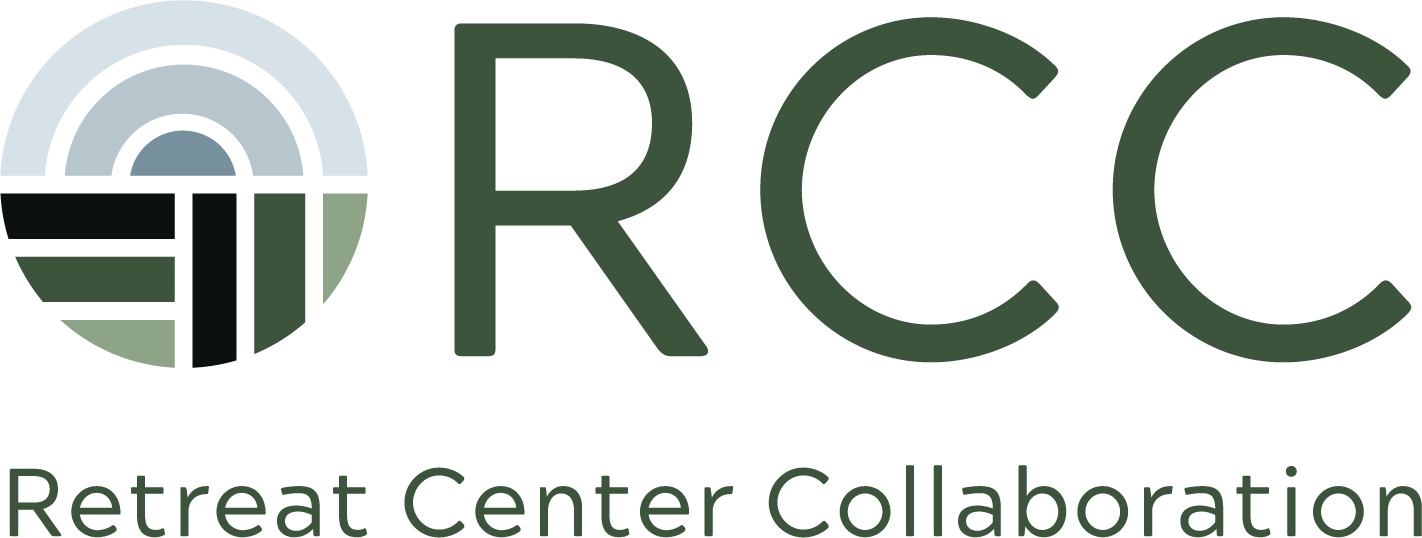Land Legacies
by Ben Scott-Brandt
The power of place and space is central to the work of retreat centers, in both rural and urban spaces. Throughout the past pandemic year of hosting virtual and hybrid retreats, we've come to recognize anew how the land can act ‘like a third facilitator,' in the words of Victoria Santos -- and how our relationships with land and place are woven into the transformation and healing that happen at retreat centers, across traditions.
The RCC's recent Land Legacies session spotlighted the diverse approaches that several retreat centers within our network are taking to honor the legacy of the land in their care. It's inspiring to see the variety of projects, each unique to their place and people, including arboretum certification, building long-term relationships with local Indigenous elders, developing a land trust and certificates of promise, returning land to the local Indigenous community, and cultivating resilience through a more diverse governing body.
How did this conversation start at the RCC? And where is it headed?
‘Land legacies’ is a useful phrase because it’s versatile and provocative. It teases us into thinking bigger. The phrase initially came from a series of conversations shared between RCC leadership and Krystyna Jurzykowski, a retreat center founder at High Hope Sanctuary for Retreat. It feels imaginative to say the land has a legacy, separate from our human legacies. We’re used to seeing ourselves as the authors of our own stories, particularly within the culture of rugged individualism that permeates American society. But how separate are these two legacies? Can they be separated at all? Consideration of the land’s legacy invites us to join hands with a community larger than ourselves; it’s a collaborative posture.
The word legacy also draws our attention to a larger temporal framework, beyond our organizations’ annual budgets, beyond our generations’ stories. Understanding the legacy of the land we inhabit means looking back carefully at ancestry and history, and looking forward at the intention and impact of our efforts on and with the land. These are legal and ethical considerations, just as they are ecological, financial, practical, and spiritual.
Sitting with the land this way brings up new questions. Whose stories are here? How do our stories connect? How might we enter into relationship with these community members? How might we contribute to protecting and regenerating all that's alive within this place, and the future that’s still emerging? Exploring the legacy of the land invites questions that are larger than us or our organization, and challenges the idea of 'ownership.' Ownership is temporary. Legacy is not.
Retreat centers are places to explore models and lifestyles of resilience, healing, and renewal; we gather to cultivate skills and tools of environmental stewardship and conservation, to build relationships across generations and cultures, and to honor relationships across species and communities. For these reasons and more, ‘land legacies’ is a conversation that seems deeply connected to retreat centers.
At retreat centers we often articulate the power of retreat to heal us, to reconnect us, to deepen us into presence and awareness and purpose. This healing and reconnection is only part of the story of the land. There is also harm and trauma within the story of the land, just as in our own stories. Separation from land harms people, and land dispossession, forced migration, slavery, and cultural erasure are all part of the story of land here in North America. Separation from land harms the larger-than-human world as well. Habitat loss, deforestation, climate change, and other stressors are part of our stories too.
These damaged relationships to land are all around us. Listening is key. These stories are held by many participants, human and nonhuman, old and young, those with us and those no longer here.
Connection and relationship to land holds the potential for healing and justice. Many of our programs are built on this understanding, at least implicitly. How can we make these connections between land, justice, and healing more explicit at retreat centers, and widen the circle to include more stories? These are the questions I’m holding.
In addition to the stories shared in our Land Legacies session last month, I've also been inspired by the work of the Ekvn-Yefolecv community, a Maskoke Ecovillage in Alabama, whose values of Indigenous lifeways and interconnection ripple across their website. I’ve been excited to learn more about the Loretto Community in Kentucky, whose entire community affirmed the values expressed in this land ethic in 2006. And I’ve been encouraged by the opportunities to connect individuals across our sector on shared values, with an eye to collaboration in our future.
Because of the diversity of retreat centers and places in the RCC, there really aren't turnkey solutions to the challenges of land management, conservation, protection, and stewardship at retreat centers. As I heard in a recent conversation on developing transformational residential programs, the best marker of longevity and success is how local you start. Dip two fingers into the dirt, hold them under your nose, and make decisions from there. Sometimes we need a larger community to remind us to dig deep right where we are. I hope the RCC provides that community.
We're planning a Community Call on Land Legacies for July 13, 2021. We’re also continuing to explore the possibility of launching a Collaboration Hub on this topic -- a virtual conversation corner for a smaller group to support one another in research and development of land legacy strategies.
Please reach out to the Retreat Center Collaboration community with your ideas and questions, recommended books and speakers, by sharing your thoughts in our Community Call conversation on July 13th, or posting here on our Mighty Network.
And let’s reach out to that interconnected web of beings and stories right outside the doors, too.
The land is telling a story, and we’re a part of it.


